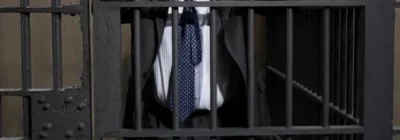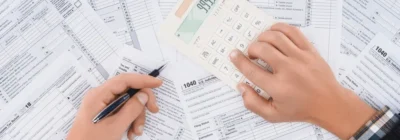Are lessors responsible to pay Vat for rent a property?
Patrick Gordinne Perez2024-06-15T07:31:49+00:00Landlords of real estate are liable for VAT. In this article we will explain this in detail,
Landlords of property and VAT: taxable persons
The leasing of real estate is, or is not, subject to VAT depending on the activity carried out there. And, in the event that it has to be paid, it is fixed at the general rate.
The taxpayer of the tax is the lessor, who is considered, for the purposes of the Value Added Tax (VAT) Law, a businessman or professional and has to register in the census of professionals, businessmen and withholders.
Therefore, he must collect it from the tenant in order to subsequently pay it to the Tax Agency.
Take this into account together with the other exemptions in the IRPF.
However, there are some cases that are exempt from paying this tax.
Let’s take a closer look at the different possibilities and obligations that arise:
1. Landlords and VAT: residential dwellings
Residential dwellings, provided they have an exclusive residential use, are fully exempt from VAT. This is the first of the major VAT exemptions for the letting of real estate and also applies to garages and storage rooms.
If this is the case, it is also not necessary to register in the census of professionals, business people and withholders.
However, there are, within this exception, activities that would be subject to tax: leasing to third parties by a specialised company and tourist flats.
2. Agro-livestock holdings
On livestock farms, there are fixed buildings, such as stables.
Well, in this case, the rent, although subject to VAT, would be exempt.
Therefore, no payment should be made for this professional activity. It is important to point this out, because there are other professional activities that are not exempt.
3. Commercial premises
Business premises are subject to VAT, because they are generally considered to be a chargeable activity.
The landlord-landlord is obliged to invoice 21% VAT and subsequently to pay it to the tax office.
It should be noted that this applies to any area in which a professional activity is carried out for profit, also in residential or office buildings in flats.
4. Other special cases
The rule of charging VAT on leases has other special variables to be aware of. Some examples:
Housing compatible as a workplace: in this case, VAT should be charged because an economic activity is being carried out.
Renting to non-profit associations and foundations: when this case arises, there is an exemption for the payment of VAT.
Rental with purchase option: if it is between private individuals, and with a duration of more than 10 years, the rental will be exempt from VAT.
Consequently, it is essential to consult and get proper advice so as not to make mistakes when settling the tax. This will save problems and money in the future.

Landlords do not have to file the annual VAT summary form 390.
Form 390
During the month of January, VAT taxpayers must submit the annual VAT summary to the Inland Revenue, declaring the total amount of sales and purchases made in the previous year.
Until 2015, lessors of real estate who charged VAT were also required to submit this form. Well, you should know that this has changed:
- If the only transactions for which you charge VAT are the leasing of real estate, you (whether you are an individual or a company) are no longer obliged to file form 390 this January.
- However, you are required to fill in additional information on form 303 for the last quarter of 2014 (declaring your activity and the total volume of transactions carried out during the year).
- Therefore, if you do not file form 303 for the fourth quarter of 2014 (because you have been deregistered due to cessation of activity), you must file form 390.
- If the only operations for which you charge VAT are property leasing, you are no longer obliged to file form 390 (annual VAT summary).
LESSOR NOT RESIDENT AND VAT
In Spain, many rented premises are owned by people who live outside our country. How are these rents taxed for VAT purposes? What withholding tax must the lessee withhold from the rent paid?
VAT TAXATION
Rental of premises
If a Spanish resident owns premises in Spain and starts renting them out, he/she will be obliged to charge VAT on them.
However, what happens if he is a resident abroad, and will he also be obliged to charge VAT?
Well, given that the rental of premises is a type of service that is understood to be located where the leased property is located, Spanish VAT at 21% will also be applicable.
WITHHOLDING TAXES ON RENT
Retentions
On the other hand, the lessee must make a withholding tax on the amount of the rents.
The withholding to be made, as well as the way of declaring it, will also vary depending on whether the non-resident has a permanent establishment in Spain or not…
Corporate income tax
If the non-resident has a permanent establishment in Spain, he/she must declare the income obtained from the rental income for corporate income tax purposes.
Consequently, the lessee must withhold 19% withholding tax (as would be the case for any lessor resident in Spain), and pay such withholding tax to the tax authorities using form 115.
IRNR
In the event that the lessor does not have a permanent establishment, he must pay tax on the income from the rental of the premises in the Non-Resident Income Tax (IRNR), by means of the withholding that the lessee will make (and which the lessee will then pay to the Tax Authorities using form 216).
Specifically:
If the non-resident resides in the EU, Norway, Iceland or Liechtenstein, the withholding will be 19%.
If he/she is resident in another country, it will be 24%.
Concept
For a permanent establishment to exist, the non-resident must have in Spain an adequate structure of human and technical resources (own or subcontracted and with a sufficient degree of permanence) to manage the rental. The rented premises are not in themselves a permanent establishment.
If the lessor must charge VAT at 21% on the rent. On the other hand, the lessee must withhold 19% or 24% VAT on the rental amount, depending on the country in which the lessor resides and whether he acts through a permanent establishment or not.
Get advice with guarantees!
Landlords of real estate and VAT have to pay the tax depending on the situation.
Do you have a property or premises and do not know whether you have to pay the tax or the documentation to be processed?
At Asesoría Orihuela Costa we provide this service to individuals and professionals, contact us without obligation!






